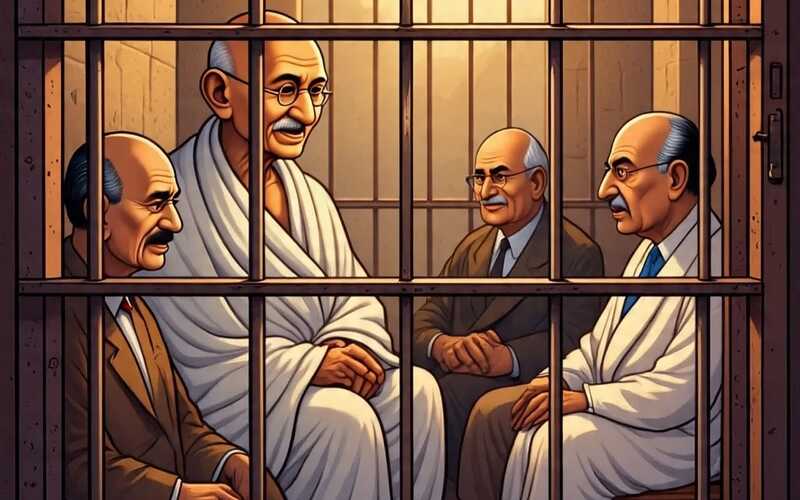- Nehru, Patel, Vajpayee, Advani too
- One month jail term clause raises storm
- Freedom fighters branded as offenders?
- A Bill that Shakes the Political Core
Article Today, Hyderabad:
The Union government’s proposed legislation has triggered a storm across the political spectrum. The Bill says any Prime Minister, Chief Minister, or Minister must step down if sentenced to a jail term of at least one month in any case. Opposition parties have denounced it as unconstitutional, undemocratic, and a weapon to crush dissent.
If Applied in the Past, History Would Be Different
Critics argue that if such a law had existed during the freedom struggle, India’s history itself would have changed. Mahatma Gandhi, Jawaharlal Nehru, and Sardar Vallabhbhai Patel—who spent years in prison for the nation’s cause—would have been disqualified from office. Even revolutionaries like Bhagat Singh and Vinayak Damodar Savarkar would have been permanently barred from public life.
Years Behind Bars for the Nation
Mahatma Gandhi spent nearly six years in prison during movements such as Non-Cooperation, Salt Satyagraha, and Quit India. Nehru spent almost nine years in jails like Naini and Ahmednagar Fort, enduring solitary confinement and harsh conditions. Patel was jailed for about four years in Yervada and Ahmednagar Fort. Bhagat Singh was tortured in Lahore Jail before his execution. Savarkar served an arduous eleven years in the Cellular Jail of the Andamans, facing solitary confinement and forced labour.
Emergency and the Spirit of Democracy
The Emergency of 1975-77 also saw top leaders imprisoned. Atal Bihari Vajpayee and L.K. Advani spent nineteen months behind bars for resisting authoritarian rule. Jayaprakash Narayan, whose movement galvanised the nation against Emergency, was also jailed. Under the new Bill, these leaders too would have been branded “unfit” to hold public office.
A Tool for Political Vendetta?
The opposition fears the Bill will enable the ruling party to misuse investigative agencies and frame rivals. In recent years, cases of corruption and money laundering have become frequent in political battles. Leaders such as Jayalalithaa, Lalu Prasad Yadav, and more recently Arvind Kejriwal and K. Kavitha, have faced jail terms. If disqualification follows a month-long imprisonment, opponents argue, governments can topple easily through orchestrated arrests.
Striking at the Heart of Public Movements
Analysts warn that this law could silence future public movements. Leaders who face arrest during protests for democratic rights or social justice could be permanently excluded from politics. By treating freedom fighters and corrupt politicians under the same lens, the Bill risks undermining the very spirit of democracy, they argue.
Democracy or Suppression?
Supporters of the Bill say leaders guilty of crimes must face punishment. But critics insist that such legislation is a dangerous shortcut. It creates scope for political vendetta rather than genuine accountability. As debates intensify, the central question remains: should leaders who go to jail for the people be equated with those jailed for corruption?



